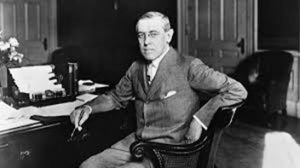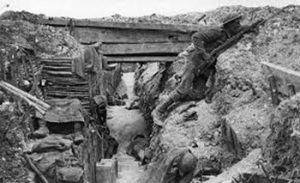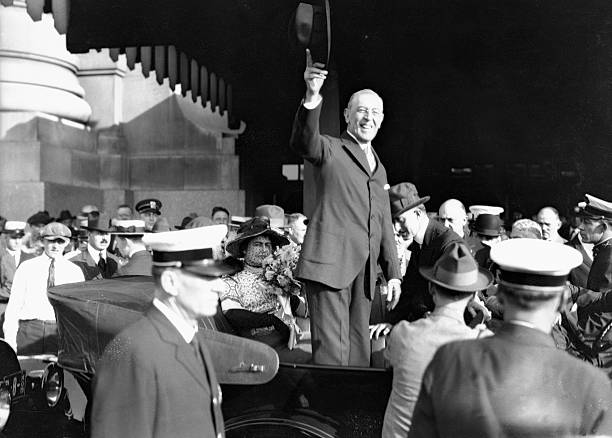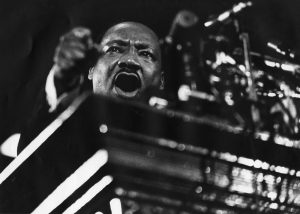Something wasn’t right. For Wilson, evaluating international political decisions was easy from the third story of a library. With his glasses freshly wiped and his sleeves cuffed, he must have looked at Theodore Roosevelt’s peacemaking between France and Germany over their struggle in Morocco in approval, equating Roosevelt’s mind for peace-making strategy to his own. But something wasn’t right.
The history of WW1 was far more complicated than most people understand. The assassination of Franz Ferdinand and his pregnant wife by a Serbian shooter in 1914 was the spark, sure, but conflicts, albeit much smaller, throughout European countries happened frequently before the fact. Namely, the Franco-Prussian War and, much earlier, the Napoleonic Wars. Then, after the assassination of the Archduke, Serbia’s protection by Russia for “pan-Slavic reasons” provided a mobilization of armies from both Austria-Hungary and Russia, which led Germany to declare war on France and Russia. All while Woodrow Wilson observed, fiddling his thumbs and wiping his brow from his office in the White House. 1

And so, Wilson made his decision. In order to clear his conscious, he took an isolationist stance and, by proxy, the US took one too, despite the growing tension in the world. Wilson said, the United States would be “neutral in fact as well as in name … Impartial in thought as well as action.”2 However, this passivity could not be taken at face value. A ill-minded president, who had just suffered the loss of his wife wouldn’t, or couldn’t, in his eyes, make such a drastic decision to fight right off the bat. He could have reasoned against entering this war many ways. Though, to be fair to him, not only was America trading with most current “Great Powers,” but he would have no backing. Joining the war on the side of the Allies per their request wouldn’t have sat well with the public. That is not to say he didn’t want to. According to Colonel House, Wilson “felt deeply about the destruction of Louvain” and he was “unsympathetic with the German attitude, as is the balance of America.” And, Wilson even “almost allows his feeling to include the German people as a whole rather than the leaders alone.”3 But, he sat still and peered judgmentally from behind the rose-tinted lenses of “peace.”
On May 7, 1915, Wilson had a decision to make. Germany, using “U-boats” or submarines, was sinking British military and cargo ships in order to sabotage the supply of munitions and other materials to their opponents. But they took it too far, in the eyes of America, when they sank the luxury liner Lusitania, a British passenger ship, and killed one-hundred-twenty-eight Americans. However, the President didn’t bite. His isolationist views were taken to their extreme when he chose to continue to stay out of the war by just making Germany promise that they would stop unrestricted submarine warfare.4 But Wilson wasn’t satisfied.

The Lusitania incident was another layer to his growing disdain of Germany, who justified this by saying America had long since violated neutrality by trading with the allies. Wilson’s health had begun to decline during this time. A constant headache waited for him when he was awake; it would persist. A gripping, mind-splitting pain intruded on his body as well as his consciousness. The isolationist, liberal beliefs the former college professor held close to his chest put up resistance against the pressure of growing public unrest and of other countries and politicians urging him in either direction, creating a moist furrow in his brow and cool, sharp spill of sweat staining the undersides of his pits. But he would continue to advocate for peace because it “protected America’s best interests.”5 This reluctance even hurt the country when it decided to enter the war, as there hadn’t been a build up of munitions or an army in preparation to enter.
This addiction to mediation haunted Wilson. Even as his eyes grew heavier and his condemners louder, he continued to dream of a nonviolent end to the conflict. It clung to him and guided his pen across the page and gave him the courage to reach out to the Tsar, Kaiser, Austro-Hungarian emperor, President of France, and King of England for a new proposal, one of a White Peace. No winners. No losers. Just an agreement of armistice. Later that year, he also arranged a secret meeting between the German and British ambassadors, but to no avail.
“A proposal for peace would be accepted by Germany and rejected by the Allies.”6 Edward House delivered this news to Wilson along with the warning that, if they became sympathetic to Germany, the Allies may be provoked into conflict with America. But a drug is no less a drug, even in the form of ideals. And being high on a self-righteous, “god-given” idea of mediating one of the greatest conflicts in recorded human history was only being stopped by those allied countries. And so, he replied: “If the allies want war with us, we would not shrink from it.”7
In lieu of Wilson’s deteriorating psyche, he proposed a “League of Nations,” where he announced to the public that America was a “great nation at peace”8 that was ready to join the aforementioned league but couldn’t because no settlement was being made between the countries. It would also go without saying that Wilson and some of his cabinet started to lean towards the side of Germany, because Germany was listening to the President, while the Allies were not.
However, on the German front, the current Chancellor began to lose control of the country’s stance on neutrality because, an Admiral reasoned, their fear of breaking away from the US must not “hinder us from using a weapon that promises success.” This notion was further reinforced by the idea that they “had the potential to end the war before the US even got to the European front,” which was a sentiment shared among German ranks.9
Despite growing tensions with German envoys and growing distain from Germans, going so far as to exclude him from certain conversations, he still held onto his ideas, still saying things like “it would be a crime against civilization to go in.”10
Then, on January 31, 1917, he received the fruits of his mediation and pacifistic labor. Germany sank the ships around her naval blockade and thus marked the resumption of unrestricted submarine warfare.9 Wilson began to break soon after this. Reports say that he had begun to snap at his subordinates and the people around him, breaking his complacent and composed visage. But still, he hesitated to take any sort of action. That was until February 25.
On February 24, British intelligence in Mexico had intercepted and translated a telegram sent by the Germans to Mexico, offering them the land they lost to the US in exchange for helping them win the war. Originally, the British were afraid of getting it to Wilson, but after a meeting with British spies, it reached his desk the following day. Upon receiving this information, Wilson knew what would have to happen. Edward House reported that the president seemed “sad and depressed” while he himself declared that he had felt the world turned on its head and he couldn’t find his balance.12His dream was dead. The possibility of a White Peace was swept out from under him and his drug of peace and mediation was gone before he knew what was happening. He began to see what was happening soon after. He even went to Congress requesting that merchant ships could bear arms, should the situation they are needed arrive.13
In an interview, the 28th president of the United States declared the potential damage to democracy irreversible, as people would “forget there was ever such a thing as tolerance,” and that the Constitution would not survive this war. But, he could maintain his justice no longer.
I imagine it took nights of re-editing and revising and hours of a shaky hand marking on rough paper for him to finally side with the Allies in the war in his own spectacularly Wilson way. The speech was good enough to rouse an applause from the audience he had in Congress, and he declared the U-boat warfare a war against human rights and values, and received approval for the United States to side with the Allies in the Great War.14
But he still couldn’t shake that gnawing, irritating sense of guilt that comes with starting a world war and resigning hundreds of your own people to die a painful death on another side of the world. Luckily for him, though, a recent revolution in Russia, known as the “February Revolution,” redefined the Russian political standing, making it democratic. Then, it was alright again. Because the war could now be announced as one of democracy, therefore giving it moral standing; therefore the President would have the ability to continue to hold his head high and continue his elitist tendencies.
Wilson’s addictive tendencies then transferred to mobilizing troops, which, probably to his surprise, was a much more difficult task as he had not built up resources beforehand when he was still struggling with mediation. He was even more motivated by the pressure he received from Vivaini, the French minister of justice, to send troops in order to support the Allies, to which Wilson could not fully agree because he didn’t have the power to do so at the time. However, the troops he did have he put into the hands of General John J. Pershing because of how limited they were by the other powers that fought with them 15
He eventually did get many troops to the European front, and as the fighting went on, he began to feel as if he lost control of his peace. During the final year of the war, however, he constructed his Fourteen Points in order to try and uphold some kind of peace after the war and a final attempt to be remembered through history as a visionary. His struggle was now fighting for these Fourteen points and his “League of Nations,” which he was so proud of as they would grant the sort of peace he was so possessed by before the Zimmerman telegram.

But, history showed that his ideas proved to be too idealistic to hold up, and the world quickly began to move away from a unified, peacekeeping international union.

- Richard Striner, Woodrow Wilson and WW1, 1st ed., vol. 1 (Lanhma, Maryland: Rowman & Little Feild, 2014), 6. ↵
- “Woodrow Wilson Address,” in Woodrow Wilson’s Declaration of Neutrality (WW1 Document Archive, March 27, 2025), https://www.encyclopedia.com/history/educational-magazines/woodrow-wilsons-declaration-neutrality. ↵
- Charles Seymour, “America’s Responsibility to Gernmany,” The Atlantic (1924), https://www.theatlantic.com/magazine/archive/1924/06/americas-responsibility-to-germany/648495/. ↵
- Bureau of Public Affairs Department Of State. The Office of Electronic Information, “American Entry into World War I, 1917” (Department Of State. The Office of Electronic Information, Bureau of Public Affairs., March 26, 2007), https://2001-2009.state.gov/r/pa/ho/time/wwi/82205.htm. ↵
- David Cohen, “Wilson Imperialism and Self Determination,” Academia.Edu, n.d., https://www.academia.edu/24180827/Woodrow_Wilson_Imperialism_and_Self_Determination. ↵
- Richard Striner, Woodrow Wilson and WW1, 1st ed., vol. 1 (Lanhma, Maryland: Rowman & Little Feild, 2014), 50. ↵
- Richard Striner, Woodrow Wilson and WW1, 1st ed., vol. 1 (Lanhma, Maryland: Rowman & Little Feild, 2014), 54. ↵
- Wilson Woodrow, “Wilsons Address to Congress,” n.d., https://www.wilsoncenter.org/sites/default/files/media/documents/page/neutralinfactdeclaration.pdf. ↵
- “Milestones in the History of U.S. Foreign Relations – Office of the Historian,” accessed February 6, 2025, https://history.state.gov/milestones/1914-1920/wwi. ↵
- “‘Peace Without Victory’: Woodrow Wilson and the Remaking of American Geopolitics,” Los Angeles Review of Books, March 26, 2015, https://lareviewofbooks.org/article/peace-without-victory-woodrow-wilson-remaking-american-geopolitics/. ↵
- “Milestones in the History of U.S. Foreign Relations – Office of the Historian,” accessed February 6, 2025, https://history.state.gov/milestones/1914-1920/wwi. ↵
- Richard Striner, Woodrow Wilson and WW1, 1st ed., vol. 1 (Lanhma, Maryland: Rowman & Little Feild, 2014), 99. ↵
- Richard Striner, Woodrow Wilson and WW1, 1st ed., vol. 1 (Lanhma, Maryland: Rowman & Little Feild, 2014), 112 ↵
- Richard Striner, Woodrow Wilson and WW1, 1st ed., vol. 1 (Lanhma, Maryland: Rowman & Little Feild, 2014), 118. ↵
- David Steigerwald, “The Legacy of Woodrow Wilson: American War Aims in World War I.,” The Historian 60, no. 3 (March 22, 1998): 623–25. ↵



6 comments
Alejandro Rubio Chappell
What struck me most was how the article showed Wilson’s obsession with neutrality, almost like it was a personal lifeline in the chaos. The way his health, grief, and stubborn hope for peace shaped his choices added a layer of vulnerability that we rarely get in history class. You really feel the weight of isolationism not just as policy, but as a coping mechanism in a world unraveling around him.
rmanzur
This article was incredibly well written and immersive. It did a great job blending historical narrative with psychological insight, especially regarding Wilson’s internal conflict during WWI. The details about his health, ideals, and emotional struggle made the history feel personal and real. I really appreciated the depth of analysis,it gave me a new perspective on America’s entrance into the war.
Carlos Flores
Really interesting take on Wilson—especially how you show his inner conflict and obsession with peace almost like an addiction. The way you described his hesitation and the toll it took on him made the history feel personal and real. I liked how you connected his decisions to bigger consequences, like the lack of military prep. Overall, it’s a unique and thoughtful look at a complicated figure.
TJ
I really enjoyed how the article laid out Wilson’s struggle between peace and the push to enter WW I. The author did a great job showing his isolationist stance and how events like the Lusitania sinking and Zimmerman telegram forced him to change. I especially liked the vivid details of his personal struggle, his headaches, his frantic scribbling, and how those human moments contrasted with his lofty vision for a League of Nations. The clear timeline from 1914 through the Fourteen Points made the whole story easy to follow.
Micaella Sanchez
Reading about WWII from America’s side puts it into perspective on how dangerous it can be to stay neutral. In the article, you said that when the us tried to make peace, the Allies threatened us. We did not back down; it can be a very dangerous game to do so. If they had ended up attacking, we could have been — and still be — in a very different position than we are now.
Meadow Ayala
This article really captures the complicated and often painful side of leadership that we don’t always talk about. Wilson wasn’t just a president making decisions from a place of power — he was a man torn between ideals and reality, fighting his own doubts and health while trying to hold onto peace. Reading this made me feel the weight of his choices, his hesitation, and his guilt in a way that history books often miss. It’s a reminder that even leaders are human, and that the cost of war isn’t just measured on the battlefield, but inside the people making these impossible decisions.